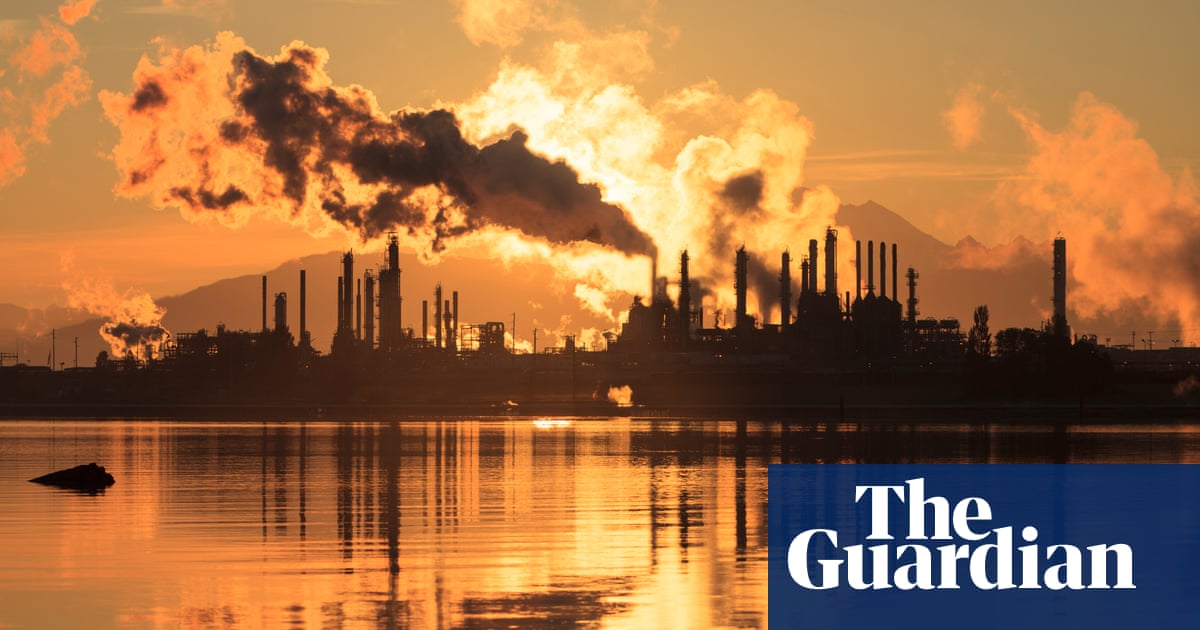Adani’s Queensland coalmine a threat to important wetland, Indigenous groups and scientists say | Carmichael coalmine

There is growing concern that a culturally significant and nationally important wetland is under threat from Adani’s controversial coalmine in Queensland, with an Indigenous group demanding the government investigate alleged breaches of the conditions that protect the site.
Scientists say drops in water levels in bores around the Doongmabulla Springs have been detected hundreds of times since mining started, and allege hydrocarbons associated with coal have been found in bores and the springs themselves.
Adani rejected the claims, saying the springs had not been damaged by the Carmichael coalmine, operated by Bravus – a subsidiary of the Indian-owned Adani Group – and the company was fully compliant with environmental conditions.
The springs, located mostly on a nature refuge, are a nationally important wetland and a culturally important site for Wangan and Jagalingou people, and their protection was a condition of the project’s 2016 federal approval by the then environment minister, Greg Hunt.
In a letter sent this week to the environment minister, Tanya Plibersek, and seen by Guardian Australia, the Wangan and Jagalingou man Adrian Burragubba wrote the minister should investigate concerns primarily around the health of the springs, the levels of groundwater and the models used to predict how mining might affect the site’s underground water.
Burragubba, who has long campaigned against the mine, said the springs, lagoon and a nearby ochre deposit were a sacred place for Indigenous ceremonies.
“We go to reconnect with our ancestors and to hand on the stories of how we began,” he said. “The [state] government’s job is to make sure our human rights are not limited.”
Burragubba’s Nagana Yarrbayn Cultural Custodians group is in Queensland’s supreme court trying to force the state government to act on their warnings about risks to the springs. Part of the push for a judicial review argues the group’s human rights are being restricted.
The group says it wrote to the state government in November last year outlining the findings of reports from two scientists it had commissioned, as well as a report from CSIRO.
One of those scientists, Prof Matthew Currell, a hydrogeologist and groundwater expert at Griffith University who is involved in ongoing research into the health of the springs, wrote there had been “marked increases” in detections of hydrocarbons in bore water sampling since mining started.
Currell told the Guardian the springs had been in existence for thousands, if not millions, of years but alleged that now “hundreds of instances” where the levels of groundwater and the water quality had exceeded trigger values.
“The concern is that the Carmichael mine is only 10 kilometres from the springs and they have been pumping significant volumes of groundwater.
after newsletter promotion
“I believe the springs are still in good health, but the levels occurring in bores between the mine and the springs have seen them going below the triggers. That’s a warning sign that we might not have too long. It’s a matter of time before we see impacts on the springs themselves.”
He alleged hydrocarbons often associated with coal had been detected in bores and in the springs.
“That points to a potential impact from mining and it needs to be urgently explained,” he said.
A 2023 CSIRO review of the mine’s groundwater modelling and reporting said “confidence in the range of predicted impacts is low” and the company’s groundwater modelling report failed to comply with one of the conditions of its state environmental approval.
Questions to Plibersek’s office were forwarded to the environment department, where a spokesperson said: “The department is aware of the matter and is making inquiries.”
But a statement from Bravus said the company “wholly rejects the incorrect claims” of the scientists and said no damage had occurred to the springs. The mine was fully compliant with all state and federal obligations, it added.
“Our groundwater program uses highly sensitive early warning triggers to detect small changes in groundwater levels that are then investigated. These triggers are not exceedances, and none have been related to mining activity.
“Mischievous claims of hydrocarbons in the springs are false. Any trace elements detected are due to tiny amounts of drilling lubricants from when the monitoring borehole was dug. This is the same process used to drill any domestic water bore and it is not harmful to the environment.”
In a stement the Department of Environment, Science and Innovation said groundwater drawdown thresholds acted as an early warning system and that there was “no evidence that mining activities are impacting the Doongmabulla Springs Complex at this time.”
The department had reviewed Adani’s reports from each groundwater trigger incident and those reports “confirm it has not been caused by mining, but rather by dry seasonal conditions, landholder pumping nearby, or natural variation.”
The department had filed an application to stay or dismiss the judicial review application over the department’s decision not to exercise power under the Environmental Protection Act 1994.
But the statement said the department had in March 2023 issued an order preventing Adani from starting underground mining until the company had filed a second groundwater report, after the first was “rejected because DESI has low confidence in the predictions made in the report.”
Adani has appealed that order, the statement said, but the company had agreed to install more monitoring bores and do more groundwater modelling work “to identify any short-term drawdown impacts”.
Source link




